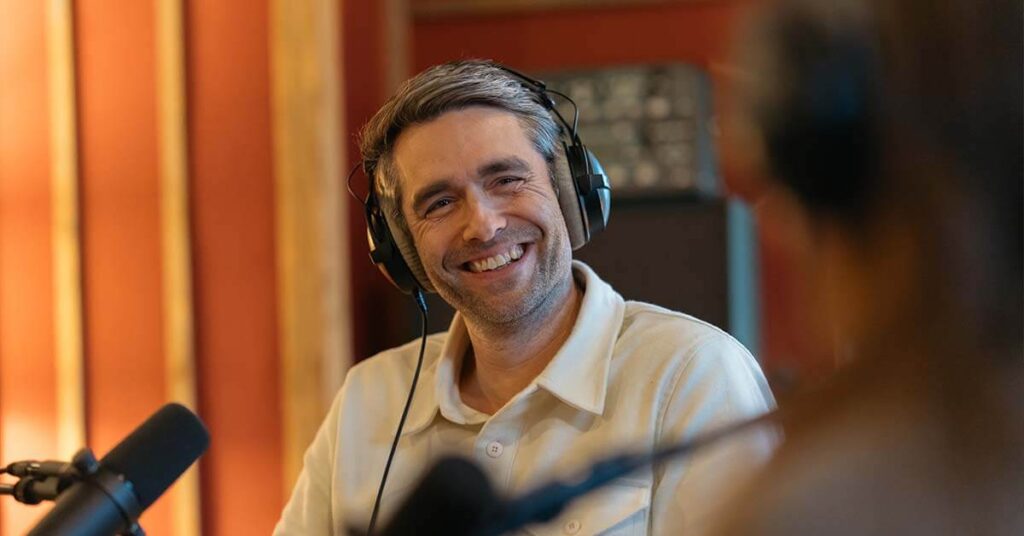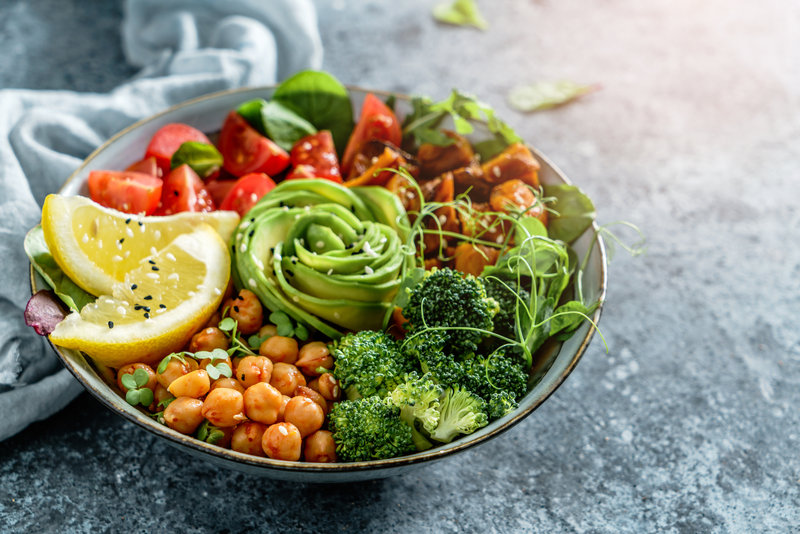Urban Sports Club is all about fun and variety whether you rather get fit with football, swimming, yoga or bouldering. But in the fast-paced world we live in it can be difficult to maintain a healthy, well-balanced lifestyle. Feeling good is as much to do with nutrition as it is with staying active, so we chatted with nutritionist John-Frances Kennedy to get his key advice on how to feel good inside and out.
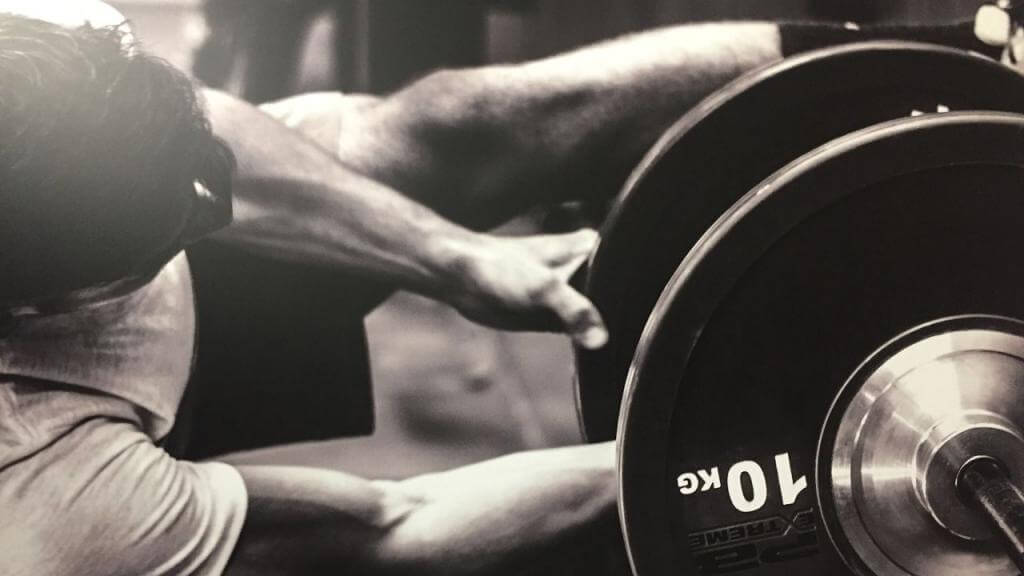
John-Frances Kennedy – or JFK as he’s known – has been interested in health and fitness since his late teens when he wanted to get a six-pack as defined as his friend’s. He started going to the gym and dieting but quickly found that it wasn’t working. “I did the usual ‘no carbs’ in the evening,” he says. “And I misinterpreted that by eating quite badly throughout the day and having a salad in the evening. It didn’t work out with the six pack.”
But he’d taken his first step into understanding the human body and since then has guided clients young and old, from a variety of backgrounds, to live a healthy, happy life in the long-term. Here are his key pieces of advice…
1. Keep a food diary
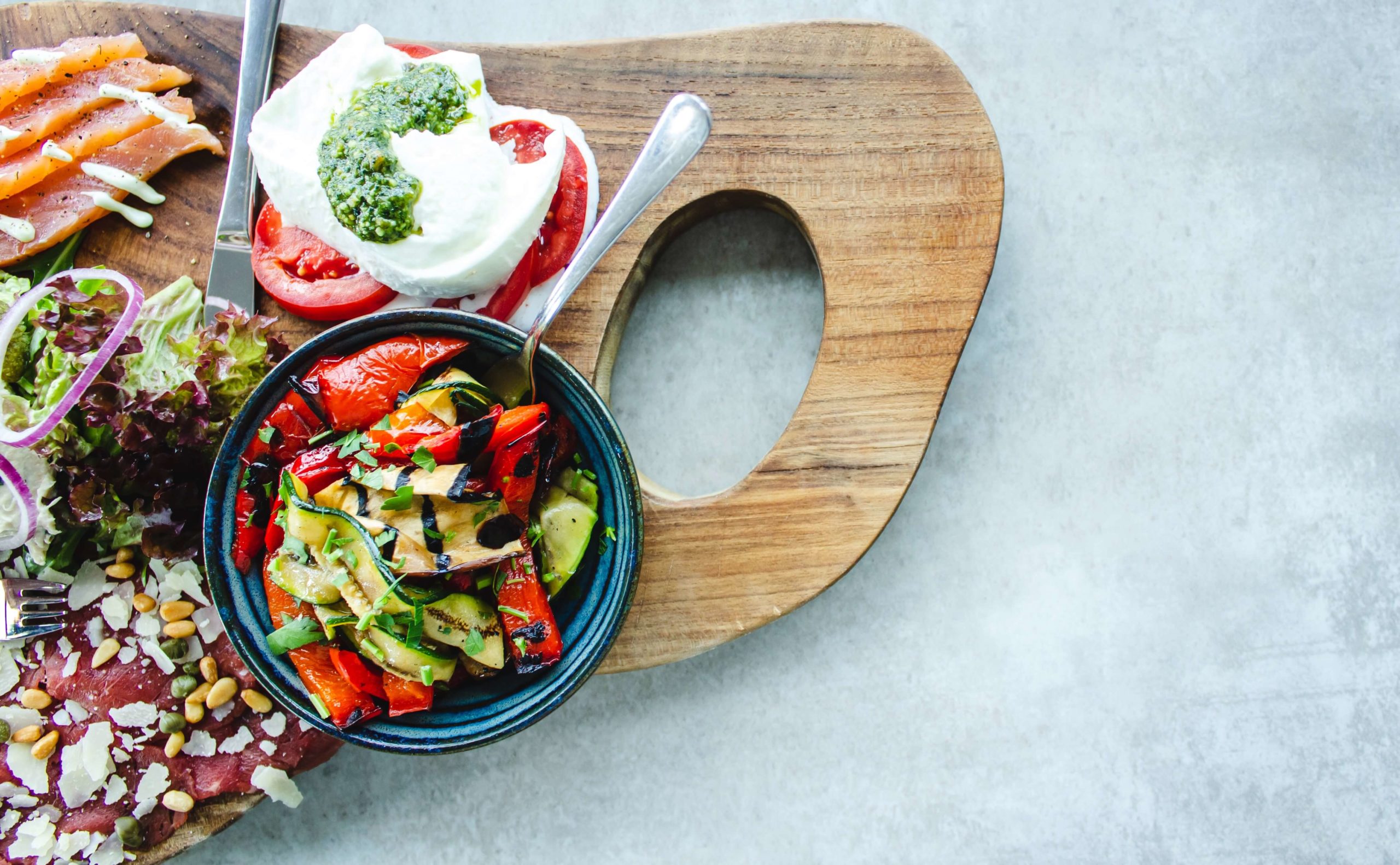
In recent years more and more people in Western society are suffering from stomach problems. This can be exacerbated by a busy lifestyle, especially if we pick up fast-food to get a quick fix. If you have digestive problems, JFK says “Keep a diary and write down what you eat and how you feel afterwards.” JFK often suggests an elimination diet to clients who are suffering with pain and bloating.
“Pay attention to how you feel after eating different foods,” he says. “For example – I like cottage cheese because it’s full of protein. If I eat it with vegetables then it’s fine, but if I combine it with fruit my stomach really hurts. So one food might be fine but combining it with something else might mess up the system.”
He also encourages his clients to pay attention to when they feel good. A food diary will help you identify the best foods for your system because, although there’s a lot of nutritional information online, the truth is that every single person is different.
2. Don’t eat late
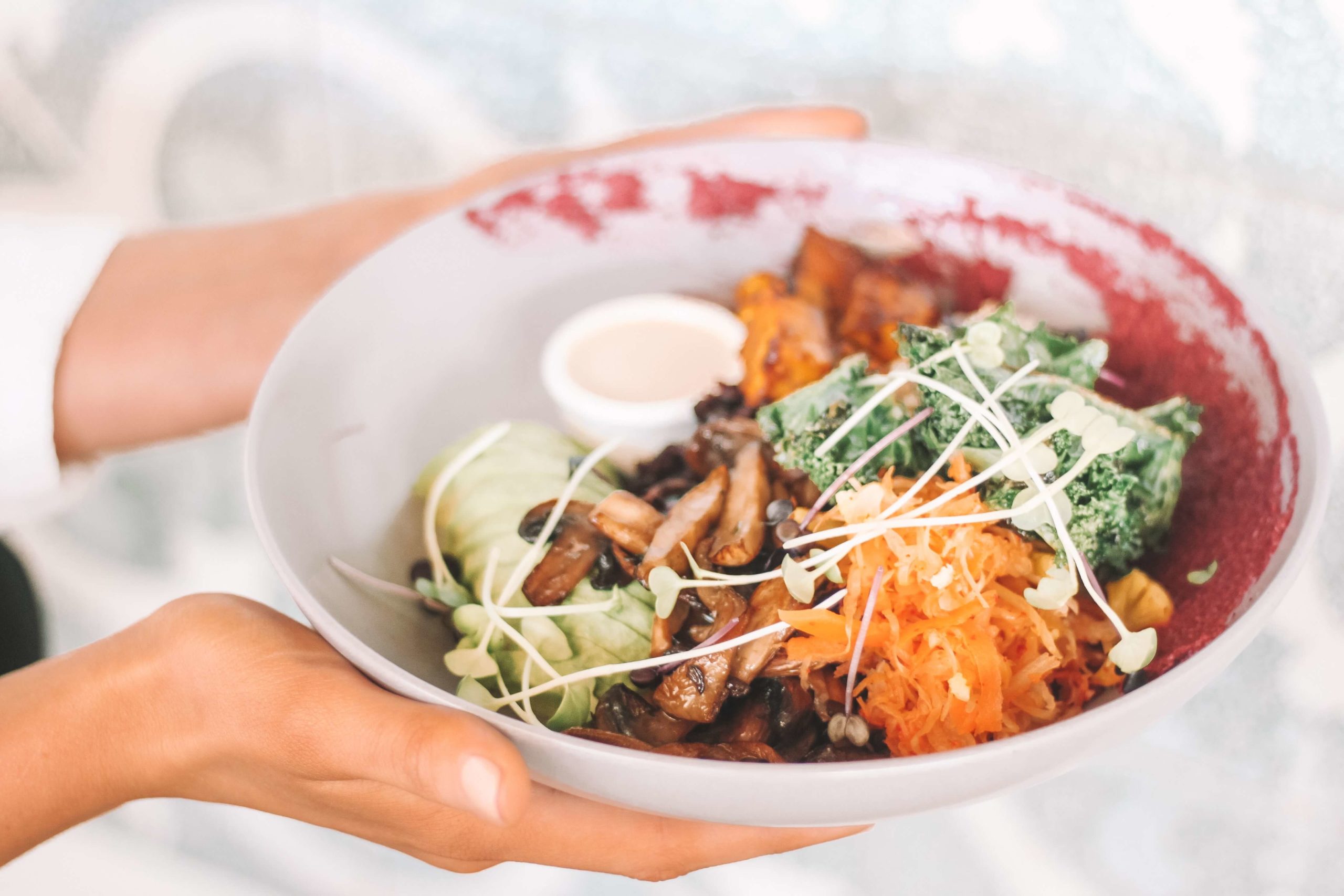
A busy lifestyle sometimes means meals are pushed to the last minute. However eating dinner late can be very detrimental to your health. “During sleep the digestive system rests along with your body,” JFK says. “I advise to have your last meal about 2 – 3 hours before going to bed so you won’t wake up with digestive problems.”
JFK also says that although it can be tempting, the worst thing you can do for your digestive system is to eat fast food late at night. “If you’re going home late then don’t eat something that’s high in fat. Because fat slows down the digestion process from 24 to 36 hours.”
And drinking alcohol doesn’t help. “Fatty foods combined with alcohol is very dangerous. Alcohol basically shuts down the fat metabolism because the body is so preoccupied with trying to digest the alcohol – because it’s like a poison- so the body prioritises that. So once the alcohol is broken down then the body will start digesting food. It’s a very slow process.”
So if you pass McDonalds on your way home from a night out, try your very best to resist.
3. Take your time
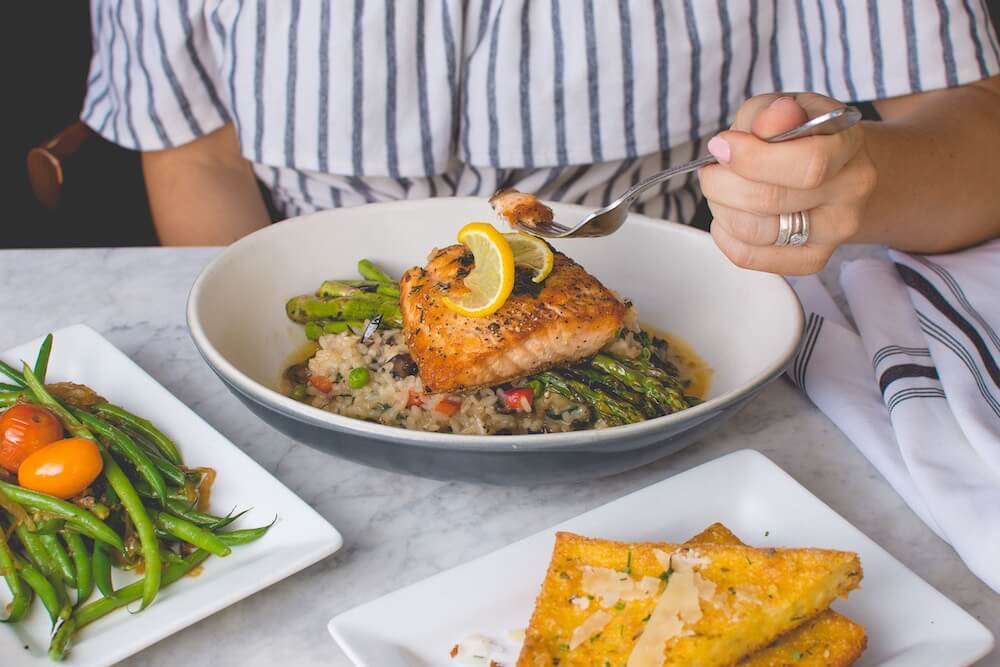
Busy people don’t realise the importance of slowing down while eating. JFK says that eating a meal in less time than 15 minutes is not good for you. “Eating fast is bad. You actually swallow a lot of air which leads to stomach problems. So slow down your eating process.”
Although it can be tempting to eat lunch at your desk or in-between meetings, taking time to chew and eat mindfully is hugely beneficial to your overall health and means you eat less – as you’re paying attention to how full you are. And it reduces the likelihood of feeling gassy and bloated.
4. Know your carbs
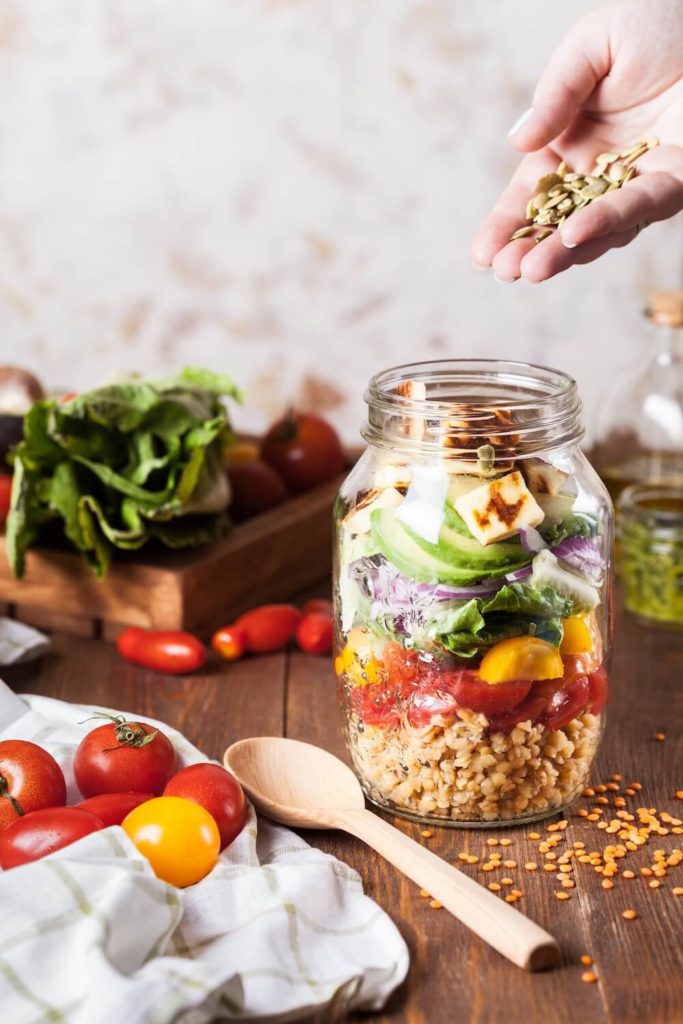
“There are different kinds of carbohydrates,” JFK says. “All carbs are sugars but they have different kinds of molecules which break down in different ways.” JFK says that white carbs like bread and pasta digest and enter the bloodstream quickly. These are the kinds of carbs that give you an energy spike and then a dip. “Fructose in fruit is released a bit slower, and then you have starchy carbs like rice or potatoes which take longer to digest. I advise people to stay away from simple sugars and shift to eating starchy carbs which have slower energy release. That way you won’t have a sugar spike and an energy drop after.”
But not every carbohydrate is bad. The kind of carbs that release slow energy are rice, potatoes, quinoa, oats, lentils and cauliflower. “In general, if you want to lose body fat and stay fit and healthy – shifting to these carbohydrates will be a positive change.”
5. Manage your stress levels

“I like to look at psychology and behaviour as well as nutrition,” JFK says. “Health is an entire system and nutrition is just one part of it.” Being stressed and bad sleep patterns are huge contributors to overall health problems.
“I coached an 18 year old on training and nutrition,” JFK says. “She was already stressed out of her mind with her job. She had a positive nature but she’d get crushed at work.” JFK says she would come to many of their personal training sessions really stressed and upset, often with a headache. “Sometimes we’d sit for 30 minutes and just talk,” he says. “And one day she came in and had a big bright smile on her face. She said she’d quit her job, applied for a new job and she got it. After that our training was better and we’d eliminated the stress so her nutrition improved – she stopped snacking all the time.”
To JFK this psychological connection is the reason he loves what he does. “That’s why I do it. It’s not about getting people a six pack, it’s about happiness. My mission is to help other people become a healthier, stronger version of themselves.”
And JFK’s fitness advice? “Try out as much as you can. Urban Sports Club is a great platform because you can learn from so many different people. Not one sport is the right sport – not even one nutritionist has the right approach. You benefit the most the more you try out and the more input you get from different people. So the healthiest sports is a combination of all of them.” Click the link and sign up to Urban Sports Club.
If you’d like more information or to book a consultation with JFK, take a look at his website. And check out his free e-book for an introduction to nutrition.

